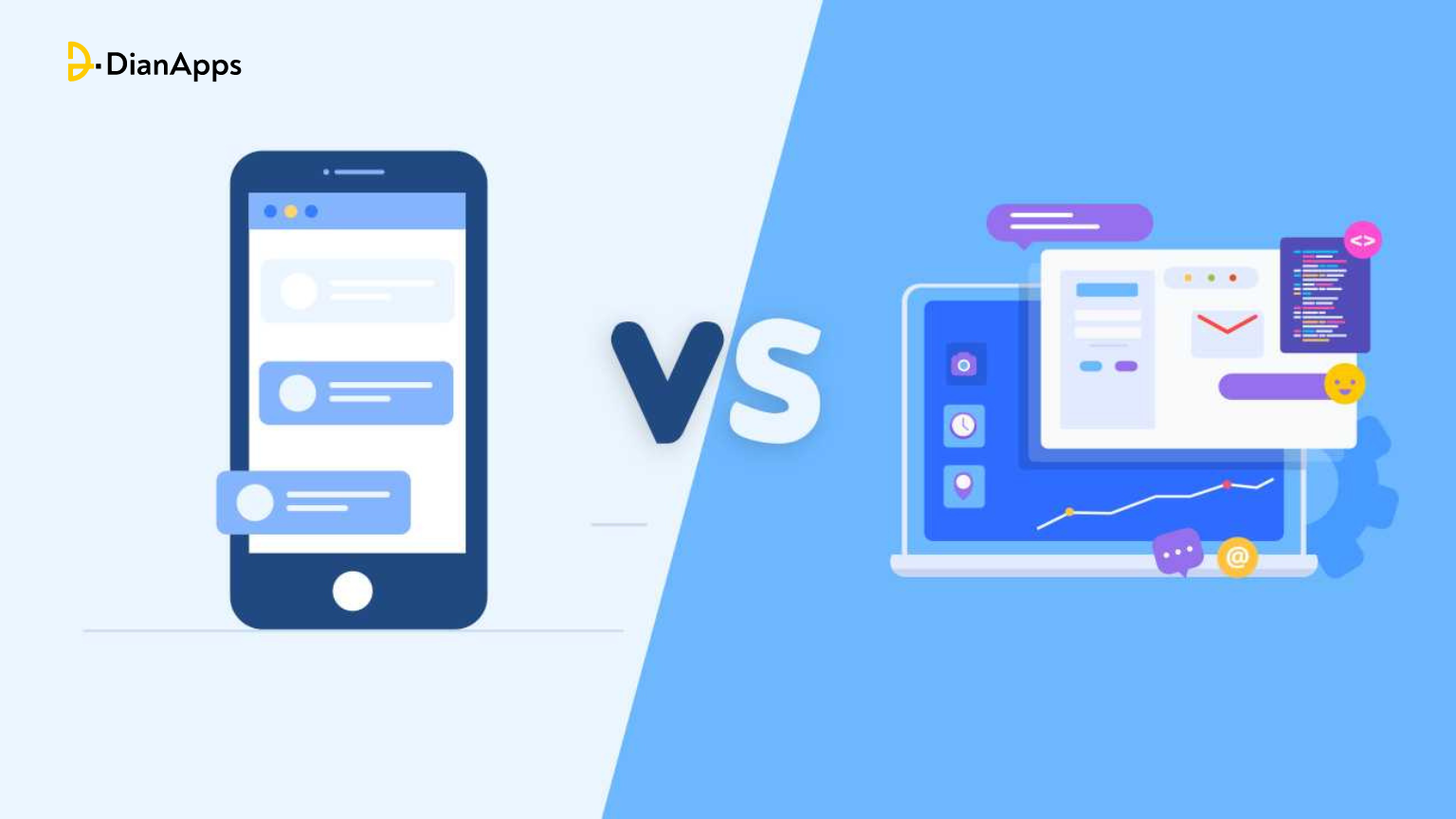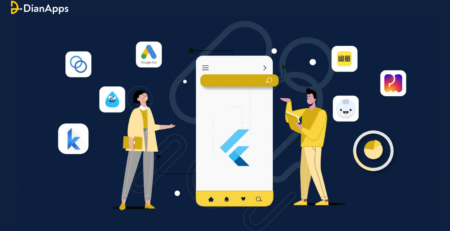Mobile App Vs Website: Which Is Better For Your Start-up Business?
As the world is going digital, almost every business is busy designing its mobile app or website to establish an online presence.
However, entrepreneurs who are now establishing their startups, usually face a critical decision – whether to opt for a web app or a mobile app.
Well, both options come with their pros and cons, and choosing the right one is based on a few critical factors like requirements, budget, and the type of customers you want to pull into your business.
Often, mobile apps are created after the website, but is this the best strategy for your startup?
Before you arrive at a final judgment, go through this guide to assess the major benefits of mobile apps over websites and vice-versa. We’ve also done a thorough comparison of both approaches based on various aspects, providing insights to help you in making an informed decision.
Let’s begin with some mind-boggling statistics that you should be aware of!
Statistical Synopsis of Mobile Apps vs. Websites

- As per a survey by eMarketer, Smartphone users spent about 4 hours on the internet in a day in 2020, with 88% of that time within apps.
- The average time spent on mobile apps has increased by up to 50% in the last two years
- People Spend 90% of their Mobile Time Using Apps.
- More Than 100 Billion Hours are Spent Each Year in e-commerce apps
- Overall, apps have an average of 157% higher conversion rates as compared to websites.
- 51.2% of web traffic comes through mobile devices in North America.
- By 2025, over 10% of all US retail sales are expected to be via mobile commerce
Website vs. Mobile app – Overview
Let’s begin with the basics: a website consists of interconnected pages accessible via a browser, adapting to various screen sizes. While primarily content-focused, they tend to be less interactive. Notably, websites rely on an internet connection for full functionality and are generally more budget-friendly.
On the other hand, mobile applications are platform-specific software downloadable from app stores. Comparatively, mobile apps often offer advantages surpassing those of mobile websites. However, a thorough analysis is necessary to determine the best fit for your specific case. Many successful companies opt for both, maintaining an attractive website alongside a tailored mobile app catering to audience and business needs.
Mobile apps can be both native and hybrid catering to various industries, such as Gaming, M-commerce, Travel, Productivity, Lifestyle, Entertainment, Healthcare, and many more.
Keep in mind that websites, web apps, and mobile apps are three different categories. Know more about the differences between Web Development vs. Mobile App Development: Which One is Right for Your Business?
Benefits of Mobile Applications over Websites
-
Enhanced Interaction
Mobile apps offer a more engaging user experience compared to websites, allowing brands to create exclusive content, games, and contests for increased user participation and prize opportunities.
-
Versatile Offline Use
Unlike websites that rely on an internet connection, mobile apps can function offline on various devices, ensuring reliability. This versatility expands the audience reach and potential sales, making apps more adaptable than websites.
-
Wider User Base
With the widespread use of smartphones, mobile apps have the advantage of accessing a larger audience. Free downloads make apps accessible to users regardless of their financial status, contributing to a broader user base.
-
Profitability
Mobile apps tend to be more profitable for brands due to in-app purchases, subscriptions, and recurring revenue streams. In contrast, website sales are typically limited to one-time purchases, making apps a lucrative choice.
-
Customizable Push Notifications
Users can personalize mobile apps with push notifications, enabling businesses to efficiently communicate product or service updates directly to users’ devices without relying on emails or text messages.
-
Personalized User Experience
Mobile apps provide a tailored and intuitive user experience, optimized for smaller screens. In contrast, websites face the challenge of adapting to various screen sizes, potentially sacrificing image quality for accessibility on different devices.
Benefits of Websites over Mobile Applications
-
Universal Accessibility
Websites offer broad accessibility, being reachable by anyone with internet access, irrespective of mobile technology availability. Unlike apps, websites don’t mandate downloads and remain accessible even during cellular service outages.
-
Flexibility and Branding Control
Websites allow easy customization to align with branding, offering greater control. They are more cost-effective to update compared to apps, avoiding frequent developer expenses.
-
Enhanced Click-through Rates
Websites facilitate faster business discovery, leading to higher chances of visitor conversion compared to apps. Users are more inclined to click links on a website, easily discoverable through web searches, unlike less spontaneously sought-after apps.
-
Cross-Platform Compatibility
Websites are universally accessible across platforms and browsers, eliminating compatibility concerns. Apps, however, necessitate frequent updates for compatibility with new device operating systems, incurring time and cost.
-
Inclusive Accessibility for Disabilities
Web content is generally more compatible with assistive technologies, benefiting users with disabilities. Many apps face compatibility issues with such tools, making websites a more inclusive choice.
-
Cost-Effective Hosting
Websites incur minimal hosting costs, making them a cost-effective choice, especially for low-traffic sites. In contrast, mobile apps involve one-time and recurring subscription fees, adding to the overall expense.
-
Optimized Search Engine Visibility
Websites offer easier and quicker search engine optimization (SEO), driving traffic and visibility. SEO for websites is cost-free, unlike apps that require submission to app marketplaces, incurring potential long-term costs.
Should I make an app or a website for my business?
Before you jump to the decision of choosing one among mobile app development or website development, it’s necessary to assess some of the important factors. These factors mainly depend on your business and its requirements.
Answer the following questions before you begin:
What Are Your Goals for Your Product or Service?
The first and foremost goal of every business is to increase their sales with mobile apps. Before coming up with a mobile app strategy, you must define your product goals so you know exactly what the purpose of your app should be. You should also assess whether having a website would be more suitable for your particular type of business.
Where would users prefer accessing your product?
Understanding user preferences is crucial for deciding between a web or mobile-first approach. For users frequently on the go, a mobile app promises a superior experience, offering offline functionality and push notifications.
Notably, mobile devices are ever-present. Conversely, activities centered around static locations, like homes or offices, favor a web application. In scenarios such as building a SaaS platform for business use, users prefer browser access on desktops.
A web application, optimized for mobile use, excels in delivering a superior user experience for intricate functionalities across various devices.
Also read: The Role of User Experience (UX) in Website Development.
What is your budget allocation?
Being an entrepreneur, budget consideration is crucial for startups venturing online. Typically, mobile app development services suggest starting with a website due to its cost-effectiveness. Websites offer consolidated content in one interface, reducing update efforts.
Developing separate apps for Android, Windows, and iOS demands significant investment, making websites a more economical choice. Business decisions rely on understanding specific requirements, urging thorough market research for informed choices in crafting a satisfactory digital solution aligned with budget constraints.
Do you anticipate users engaging with the app multiple times daily?
Opting for an app is ideal if anticipating user engagement multiple times daily. Apps, offering quicker access and real-time notifications, suit activities like note-taking, gaming, or social media. Users favor seamless interactions, especially during short intervals like a bus ride.
Imagine accessing Facebook instantly with notifications, enhancing user experience compared to navigating through a mobile browser. However, app effectiveness depends on low functionality; slower loading, and actions that stop users, emphasizing the importance of seamless experiences for sustained app usage.
How frequently will users utilize your product offline?
In situations like trains, gyms, or remote areas with limited internet access, offline-dependent apps thrive, presenting a clear advantage in the App vs. Website debate. Catering to users who prioritize offline functionality, mobile apps facilitate seamless data access without relying on real-time internet connectivity.
Examples include Google Maps, allowing offline map downloads for navigation, Tripadvisor’s offline city guides for travel, and offline-capable dictionaries aiding language translation during international trips. The adaptability of mobile apps to offline environments enhances user experience and accessibility in diverse settings.
Does your product involve navigation or location-based elements like GPS?
Crafting a seamless experience for users in scenarios like taxi bookings or route tracking for runners is best achieved through a mobile native app, leveraging essential features like GPS. In the App vs Website debate, the app gains prominence. While web apps can perform similar tasks, they lack the speed and accessibility inherent in a straightforward mobile app. Notably, Uber, a peer-to-peer ridesharing startup, exemplifies the effectiveness of mobile apps in connecting passengers with drivers efficiently, emphasizing the advantages over traditional websites.
Is app speed a critical consideration for you?
Efficiency is paramount in satisfying user needs, and in the field of mobile browsing, speed plays a crucial role.
So, which one is more fast in terms of browsing? Mobile app or a Website?
Mobile apps exhibit superior speed compared to web apps by locally storing user data settings on the device, eliminating the need for constant data downloads from servers.
The swiftness of mobile apps, however, comes with the trade-off of installation time. For users seeking general information infrequently, a website may be more time-effective than installing an app. The choice between a mobile app and a website depends on the desired user interaction and the importance of offline accessibility within the business context.
How often do you plan to update your app?
If you are wondering:
- You will need to update your app too often
- Your app will require updates or improvement frequently often
- You will need to revamp the content or data regularly
Initiating your online presence should commence with the website development. Subsequently, consider investing in cross-platform apps, favoring hybrid over native options. Many institutions, including banks and media outlets, opt for web-based hybrid apps. This approach simplifies updates, requiring modifications only to website content, avoiding the complexities of separate updates for Android, iOS, and Windows Phone apps.
The advantages include:
- streamlined processes
- No wait times in the app store
- prompt issue resolution upon server upload
Notably, the iOS app review process may take up to 4 days, subject to Apple’s criteria, while Android updates are faster, with a waiting time of approximately 0.5-5 hours.
Do you require access to the phone’s native features?
Selecting a native mobile app becomes imperative if you intend to incorporate features like Camera, Gyroscope, or Sensors, or if users stand to benefit from location-based information. While web apps can tap into smartphone features using HTML5, such as the camera or gyroscope, they fall short in delivering geo-targeted push notifications or in-app notifications on iPhones.
Technologies like NodeJS for backend web development enable real-time data retrieval for web apps, yet the superior processing efficiency of dedicated native mobile apps ensures a distinct user experience, making both options equally viable.
Is your product characterized by complexity?
When dealing with complex elements like data reports or intricate analyses, the limitations of using such tools through a web application on a phone become apparent. To alleviate this challenge, a well-designed mobile app stands out as the clear winner in the Mobile App vs. Website comparison.
The optimized user interface of a mobile app ensures an efficient display of all relevant data, offering a superior user experience for tasks involving intricate reporting, calculations, and numerical data presentation.
Which option offers more accessibility?
Mobile apps offer enhanced interactivity, accessing features like location, camera, and contacts, providing a level of engagement beyond the capabilities of websites. Yet, a user-friendly mobile website accessible through a browser caters to those unwilling to install an app.
Choosing between a website and a mobile app depends on your business needs. Seek the expertise of the best website development company to craft an optimal solution aligned with your business requirements, ensuring a seamless and user-centric experience.
Does your competitor currently possess an app?
Analyzing competitor products unveils opportunities to position your business uniquely. While others diversify across web platforms, focusing solely on mobile systems can set your business apart. Tailoring your mobile app to the user’s handheld experience enhances appeal.
For instance, if rivals offer a to-do list app across devices, you can concentrate on delivering an exceptional experience for iOS users. Introducing innovative features, such as insightful meeting schedules, further distinguishes your offering. Strategic differentiation ensures your business stands out in a crowded digital market.
Know about more features and latest trends in iOS app development to be integrated in 2024
So, What are you choosing first? Website or a mobile app?
After considering all the above pointers, many entrepreneurs and companies may wish to develop a mobile app first.
Consider a mobile app if,
Your service involves daily use or demands high security, especially for offline functionality.
Otherwise, choose a website if,
Your focus is on marketing objectives or creating an informative platform like a digital magazine.
Assess your needs and weigh the pros and cons of a mobile application versus a website. Remember, both options demand skilled developers for optimal functionality. Consider factors like enhancing user experience through an interactive app or providing comprehensive information via a seamless mobile website accessible anywhere.
When you are done with this part, DianApps can take the lead to proceed ahead with the development of your website or mobile app. You can hire qualified developers around the globe. As an outsourcing development company, we specialize in a huge pool of web and app development services along with the latest tech stack across multiple industry verticals.
Hire dedicated app developers from DianApps who will help in establishing your business online with long-standing success.




